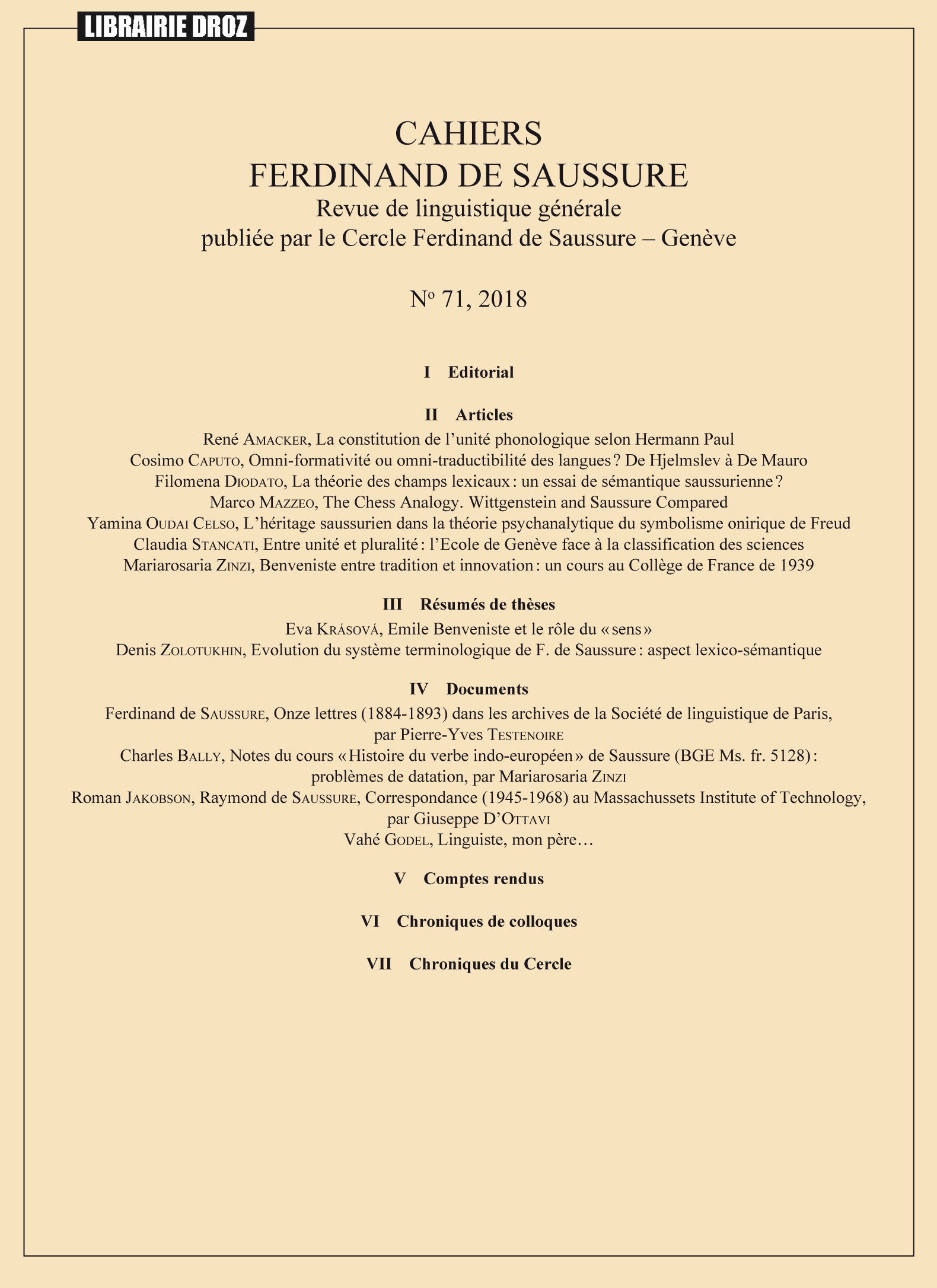The chess analogy. Wittgenstein and Saussure compared
Résumé
In the present article, I wish to highlight the philosophical and anthropological importance of the analogy between chess and language. Although in different ways, both Wittgenstein and Saussure perform the same inversion: it is not language to be interpreted as the verbal version of chess, but it is chess that represents a specific form of verbal technique. According to Saussure, the analogy works only if it cuts itself off from the logical-normative character usually associated to the game. Wittgenstein claims that the arbitrariness of mathematical, chess, and language rules is intertwined with the multiplicity of the forms of use. In the final part of the article, I try to analyse the difficulty, experienced by Wittgenstein and Saussure, in describing the historical origin of chess rules
